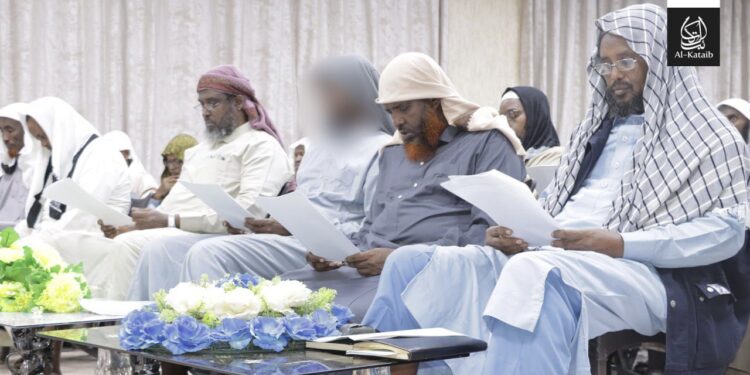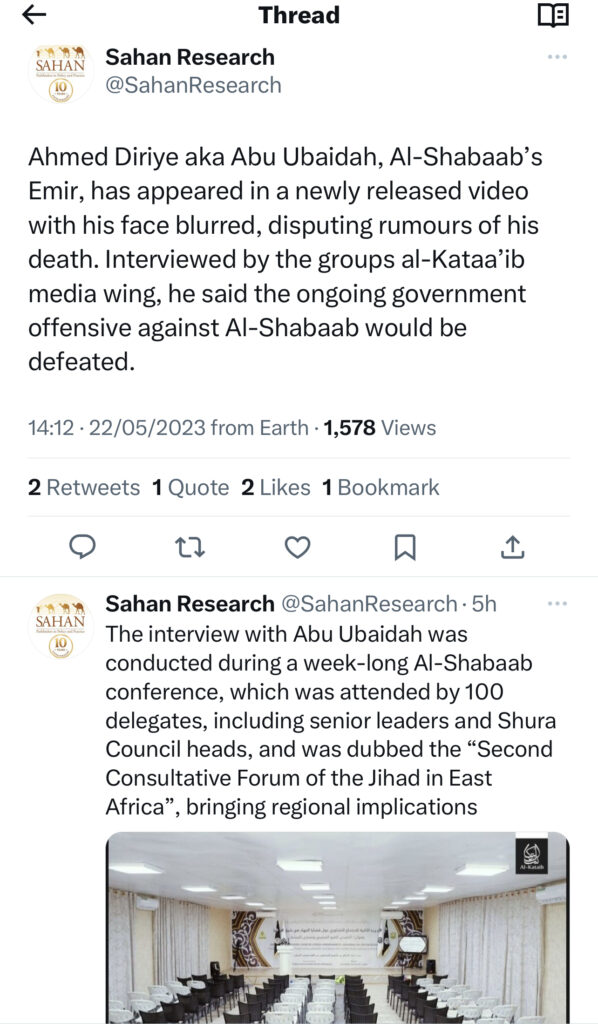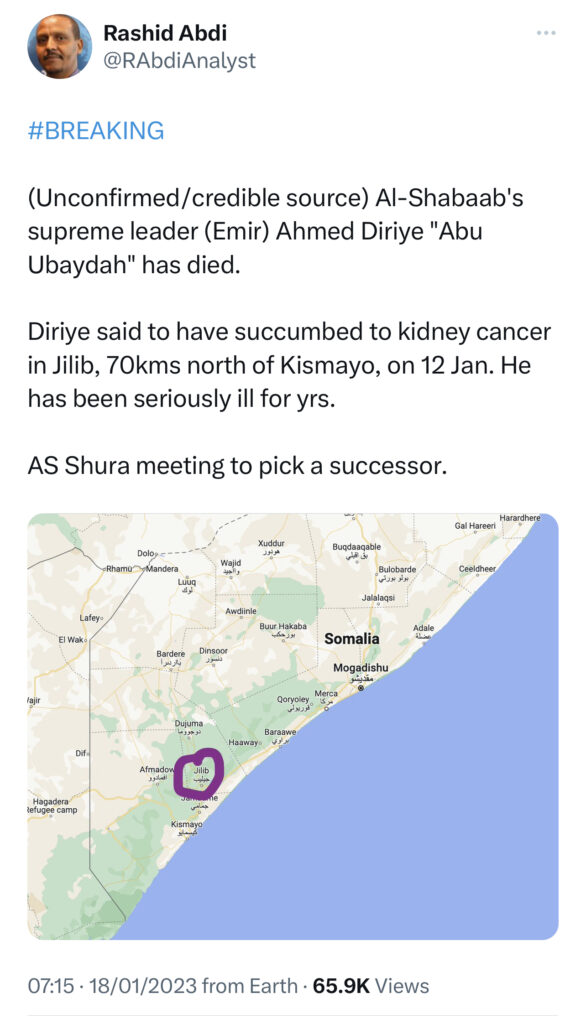(22-05-23) MOGADISHU – The global security community is astir after Al-Shabaab leader Ahmed Omar Abu Ubaydah, alias Ahmed Dirie, resurfaced, thereby debunking death claims propagated by esteemed analysts earlier this year.
On January 17, 2023, Matt Bryden of Sahan Research was featured in a live BBC News Hour session, dissecting the then ‘breaking news’: the purported death of Al-Shabaab leader Ahmed Dirie, also recognised as Abu Ubaidah. Bryden provocatively disrupted the BBC broadcast, exploiting the global platform to disseminate an uncorroborated story.
In this instance, the BBC too didn’t fulfil its commitment to dependable reporting by neglecting to verify Bryden’s information before broadcasting. These baseless claims were presented as breaking news, with Bryden given an open platform to elaborate. This ill-advised decision wasted precious time that could have been utilised for more consequential and verifiable content.
Bryden declared during the interview that the Al-Shabaab leader had perished from kidney cancer in Jilib district, the unofficial Al-Shabaab stronghold in the Middle Juba region. He added that the Al-Shabaab Executive Council was deliberating on Dirie’s successor outside Jilib, mentioning Mahad Karatay and Sheikh Adan Sunne as potent frontrunners.
His colleague, Rashid Abdi, reinforced this misinformation in a subsequent tweet the following day. The bold claims of both men, made within a day of each other, showed a troubling disregard for their followers and the Somali people.
Yet, their assertions were refuted three months later when Al-Shabaab released a video purportedly showing Ahmed Dirie alive, addressing attendees at a recent meeting in an Al-Shabaab-controlled region. Despite his obscured face, the physical and vocal traits were suggestive of Mr. Dirie.
During the conference, which took place from May 8–15, 2023, Ahmed Dirie – Abu Ubaydah spoke about the actions of government forces and local groups engaged in conflict, implying that the federal government and its allies have faltered in their fight against Al-Shabaab. His remarks on recent Somali government military operations and the conflict in Sudan hint that the video was recorded recently.
This video didn’t just challenge Sahan Research’s original narrative, but it also brought the institution’s credibility into question. The distribution of unverified reports by Sahan’s key figures elicited significant feedback from observers, many of whom voiced concern over the institute’s irresponsible approach. The potential implications for Somalia’s continuing struggle against terrorism are noteworthy.
Dr Mohamed Hussein, a senior security analyst based in Mogadishu, observed, “Given the platform and research associated with Sahan Research, many accepted their word as irrefutable truth. This recent development has led to severe backlash and questions about the institution’s credibility.”
Critics highlighted the hazards of spreading unsubstantiated information to attract social media attention. Despite the contradictory video evidence, Sahan Research tweeted about the Al-Shabaab leader’s reappearance casually. It has yet to formally acknowledge or apologise for their initial unwarranted announcement of Dirie’s death.
The video, allegedly capturing the second conference on what Al-Shabaab terms as “jihad in East Africa,” has attracted substantial criticism for the government’s apparent failure to intercept such a high-profile assembly of terrorist operatives. Captain Mohamed Elmi, a former Somali military official, stated, “This demonstrates a dangerous deficiency in intelligence or perhaps a breakdown in acting on intelligence. It’s a wakeup call for our counter-terrorism efforts.”
This incident serves as a reminder to institutions like Sahan of their ethical responsibility towards their followers and the Somali people. It emphasises the necessity for prudence in disseminating unverified reports and analyses for undisclosed reasons, placing credibility and integrity at the core of their work.

















